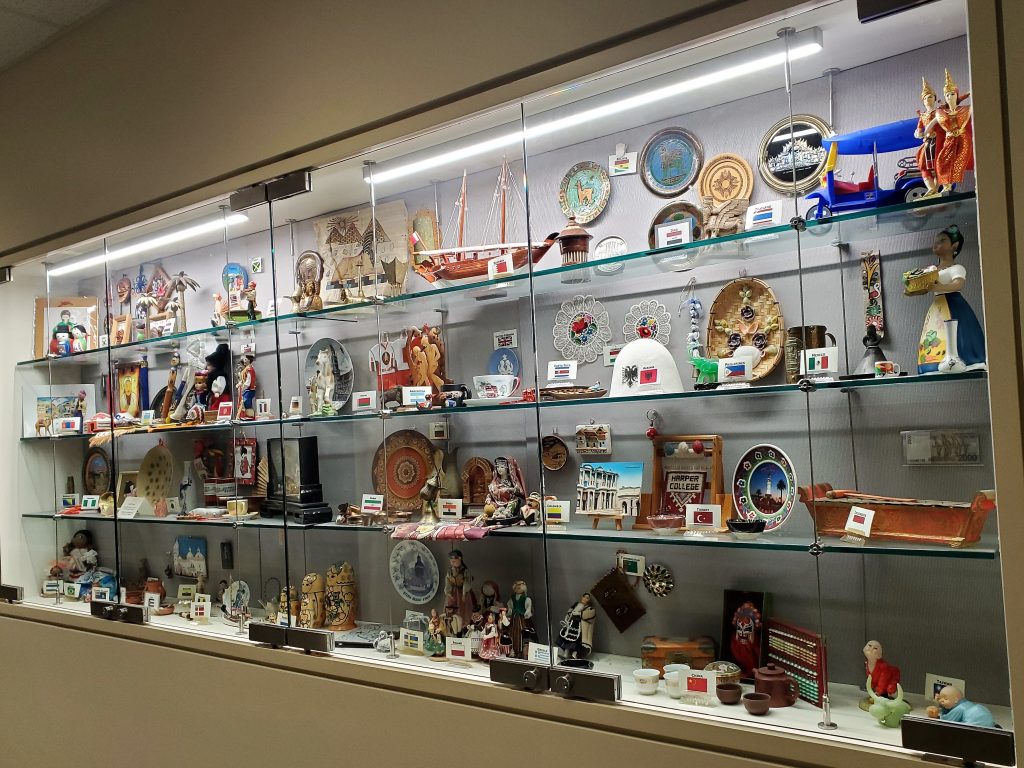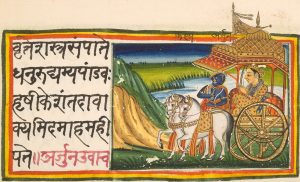Part Three Editing / Grammar Skills
Unit 15 Modals
Learning Objectives
- To understand what modals are and what principles they follow
- To learn the challenges and strategies in using appropriate modals
- To learn the meanings and uses of modals and modal-like expressions through multiple examples
- To practice using modals through a variety of writing situations
I. Pretest

The following ten sentences are about some customs from different countries. The modal and main verb are bold-faced in each sentence. If the bold-faced part is correct, choose “correct”. If not, choose the other answer. After you finish one sentence, you will get instant feedback on your answer before the next sentence. If you make mistakes, you can retry all the questions or see all the answers at the end of the pre-test.
II. Principles of Using Modals
As you have learned in Unit 9 Verb Basics in Academic Writing (Open Unit 9 here), modals are an important part of the verb family. They are considered helping verbs, also called auxiliary verbs. Most modals follow the following principles:
1. They cannot exist by themselves. They are followed by the base form of main verbs to show different meanings and tones.
modal + base form of main verb = complete verb
- In the United States, people should call ahead before visiting someone. (no “calls, called, calling, to call”)
- People must not show the “OK” gesture[1] with the thumb and index finger in Mexico. (no “shows, showed, showing, to show”)
2. Contractions are common are in modals, such as “shouldn’t” and “mustn’t”. However, “may” and “might” do not have a contraction form. It is wrong to write “mayn’t” and “mightn’t”.

- Small children
mayn’t stay(may not stay) alone at home in the United States. - It
mightn’t be(might not be) a good idea for children to stay in their friend’s home overnight.
3. Some expressions are called modal-like expressions. There is a “to” in them, and the base form of the verb follows the “to”. These expressions include: be able to, be supposed to, have to, have got to, ought to, and some others.
- People have to come on time for an appointment in the United States.
- They are supposed to explain the reasons if they are late.
4. Some modals and modal-like expressions are often used in conversations only.
- In Thailand, people had better not touch the head of a statue.
- In the U.S. restaurants, customers have got to tip the waiters and waitresses.
Exercise 1. The following sentences are about dining customs in some countries. There are mistakes in the form of modals and main verbs. Identify each mistake by underlining the whole verb (modal + main verb) and then correct the mistake. If the main verb is missing, add it.
Example:
People can to learn (can learn) about different customs and traditions when they travel abroad.

- Dinning traditions may the most interesting to most people.
- In Kenya, guests should to wash their hands both before and after the meal. They cannot sitting with their feet and toes pointing toward any of the other guests or the food. Kenyans do not use utensils[2]. They eat with their right hand. They must not to use their left hand during the whole meal.
- Americans and Europeans have opposite dinning etiquettes[3]. Americans should holds the knife in their right hand and the fork in their left hand, but the Europeans are suppose to hold the knife in their left hand and the fork in their right hand.
- People in Morocco practice communal[4] eating. This means that they eat from the communal bowl closest to them. A person must eats using his or her right hand. The left hand mayn’t be used to get food. If a bone is taken, the person supposed to suck the marrow[5] from it.
III. Challenges in Learning Modals and the Strategies in Using Them
Challenges
1. The same modal may have different meanings in different contexts.
- I can drive a car because I have a driver’s license. (permission)
- I can drive a car because I know how to drive. (ability)
2. The same meaning can be expressed with different modals, but the tone or level of strength is different.
- In order to drive in the U.S, a person must have a driver’s license. (stronger)
- In order to drive in the U.S, a person has to have a driver’s license. (less strong)
3. Some modals have the appearance of past tense, but they have a present or future meaning.
- Most cultural traditions stay for generations, but some might change quickly.
- People had better learn the customs of another country when they travel there.
Strategies:
1. Understand a modal, its meaning, its time (past, present, future), and its form together as a “package”.
- In many countries in the past, young people had to follow the custom of the arranged marriage.
- In some countries nowadays and in the near future, some young people still must follow the custom of the arranged marriage.
In both sentences, “had to follow” and “must follow” have the same meaning: obligation, responsibility, necessity.
However, the first sentence shows the meaning in the past, and its form is “had to + follow”.
In the second sentence, the same meaning is expressed in present and future sense, and its form is “must + follow”.
Therefore, try not to study modals in isolation[6]. Instead, understand them in the context and study the “package”.
2. Use the same strategy as in learning other aspects of English: practice, practice, and practice.
IV. Uses of Modals and Modal-Like Expressions
Meaning: advice, suggestions
- In the United States, customers should tip the waiters or waitresses for their service. (present)
- Customers ought to tip the waiters or waitresses for their service. (less common) (present)
- They can tip /could tip 10 – 20% of the food bill. (present, softer tone)
- Customers should not leave the restaurant without tipping the waiters or waitresses. (present)
Exercise 2. Give at least two suggestions for each of the following situations.
Example:
One of your classmates is going to visit your country as a tourist in summer.
Suggestion #1 : You should bring a few extra bottles of sunscreen because my country Colombia is near the equator and the sun is very intense.
Suggestion #2: You ought to try bandeja paisa. It is Colombia’s unofficial national dish.
- One of your siblings has found an American boyfriend (or girlfriend)
- One of your relatives is planning to study at Harper College for the first time.
- One of your American friends is going to study at a university in your native country.
- One of your professors is considering studying your native language.
- One of your friends is nervous about meeting his parents-in-law for the first time.
Meaning: abilities

- There are many languages in India. Many people there can speak more than 5 different ones. (present)
- They are able to speak Hindi, English, and some regional dialects. (present)
- The Indian government recognizes twenty-three official languages, but most people cannot speak all of them. (present)
- People in ancient Indian could speak Sanskrit, one of the earliest languages. (past)
- They were able to speak Sanskrit as early as 2000 BC. (past)
Meaning: permissions
- In Canada, college students can address / may address their professors by the first name. (present)
- In Canada, college students could not drink alcohol in class fifty years ago, and they still cannot. (past, present)
- In Ukraine, college students cannot call / may not call their professors by the first name. It is considered very impolite. (present)
Exercise 3. Finish the following sentences to express ability and permission.
Example:
When I was a child, I could climb a tree. (ability)
- When I was a child, I could ____________________. (ability)
- When I was a child, I could not ____________________ (ability)
- Now I am an adult. I can ____________________ (ability)
- Now I am an adult. I cannot ____________________. (ability)
- When I was a student in my home country, I could ____________________ (permission)
- When I was a student in my home country, I could not ____________________ (permission)
- Now I am a student in the U.S. I can ____________________ (permission)
- Now I am a student in the U.S. I cannot ____________________ (permission)
Meaning: necessity, obligation, responsibility
- In Iraqi formal greetings, people must use a person’s surname and title, for example, Dr. Kazem. (present)
- Men have to stand to greet a woman when she enters the room. (present)
- A long time ago in Iraq, everyone had to stand when an elderly person arrived. This custom has remained to this day. (past)
- In Iraqi culture, people do not have to kiss each other as a way of greeting. Handshaking is common. (present)

Meaning: prohibition[7]
- People must not whistle inside a Mongolian ger, a round-shaped dwelling. (present)
- In a ger, people must not point their feet to the north end. (present)
Exercise 4. Discuss the following questions. What are the answers in your home country? What are the answers in the United States?
- Must people get married first if they want to live together?
- Do people have to get their parents’ permission to get married?
- Must men serve in the military?
- Do school children have to wear uniforms?
- What are the things you must not do on the street?
- What are the things you must not do during a test?
- What are the questions you must not ask a lady?
Meaning: possibilities
- In Japan, parents do not kiss each other in front of their children. They must think / may think / might think / could think it improper[8] for the children to see their intimacy[9]. (present)
- This custom may change / might change /could change in the near future. The young generation should welcome / may welcome / might welcome / could welcome this change. (future)
- Some words are the same in writing in both Chinese and Japanese. However, the meanings of these words may not be / might not be the same. (present)
Meaning: expectations
- On March 8, the International Women’s Day, men are supposed to buy flowers for women in Russia and many other Eastern European countries. (present)
- On that day, women are not supposed to do much housework. They are supposed to take a day off. (present)
- Last year, Natalia’s husband was supposed to buy flowers for her, but he forgot. (past)
Meaning: preferences
- In some countries, people prefer arranged marriages. Parents would rather pick someone as their future son-in-law or daughter-in-law than let their child decide. (present)
- Some young people would rather not get into a marriage than marry someone they do not love. (present)
Exercise 5. Write sentences according to the instructions.
- Use modals of possibility to write three guesses why seafood is popular on Valentine’s Day in the U.S.
- Use modals of expectation to write three things you are supposed to know when you go to an American family for dinner.
- Use modals of preference to write three choices of food on New Year’s Eve in your home country.
V. Unit Review Practice
Exercise 6. Read the following sayings. Each contains a modal. Discuss what the saying means and whether you agree with it. Do you have similar sayings in your native language? How do you say them? If you can think of additional sayings with modals, please list them below.
- No man can serve two masters.

a dog balancing a ball - You can lead a horse to water, but you can’t make it drink.
- You can’t teach an old dog new tricks.
- You can’t have your cake and eat it too.
- Beggars can’t be choosers.
- People in glass houses shouldn’t throw stones.
- Children should be seen, not heard.
- Bitter pills may have blessed effects.
- Be careful what you wish for; you just might get it.
- You should fail in order to understand true success.
________________________________________
________________________________________
________________________________________
________________________________________
Exercise 7. The following sentences are about school uniforms. The modals and main verbs are underlined. Discuss their different meanings and time references (past, present, future) in the context. The first one is an example.

- School uniforms could be (possibility, present) an important part of school traditions. Students in some schools must wear the school uniform. They may not attend school without their uniform. The uniform must be important.
- A uniform reflects[10] the school and its reputation. Therefore, students are supposed to be in their best behavior.
- Students with totally different uniforms cannot belong to the same school even though they may be siblings. They must not exchange their uniforms with students from other schools.
- In some schools, uniforms are optional. Students may choose to wear one. They could also wear their own clothes. Some students would rather have the uniform. They would rather not spend half an hour each morning choosing what to wear.
- In most cases, uniforms are not free. Students have to purchase them. Most families are able to afford them, but some are not. This might increase the financial burden for some families.
- Even though the students must wear their uniform while in school, they do not have to wear one after school.
- Should schools require uniforms? There have been many debates[11]. If most students do not like them, they may disappear in the near future. Otherwise, they should stay for a long, long time.
Exercise 8. The follow is an essay on how high school students in different countries spend time in the summer. Underlined the modals and their main verbs. Then discuss what they means in the context and whether they express present, past, or future time. The first one is an example.
After you finish reading and understanding the first three paragraphs, write a new supporting paragraph about a person you know who spent last summer vacationing and relaxing. Then write a conclusion for the essay. Include at least five modals and modal-like expressions. You may write in the box below or in your own notebook. (Warning: Once you leave this page, you will lose what you have written in the box.)

How to Spend the Summer?
High school students in different countries may spend (possibility, present) their summer very differently. Some might value life experiences by working on a job, some could use the time catching up with their academic work, and others might consider it an opportunity to relax and have fun. How they spend their summer might reflect some of the customs and values of their cultures.
It is common for many high school students in the United States to work during the summer months. They could work in any type of job: food, travel, secretarial, health care, summer camp, and many others. Last summer, Joan worked as a summer camp activity leader. She was happy that the job provided her with valuable work experience as well as a small income. Both the experience and the money should be helpful in her future college study.
In Korea, however, it is not usual for high school students to hold a job in summer. They are supposed to take extra classes to prepare for university. Last summer, Ji-hoon kept himself busy by taking a few science and English classes in a cram school. Though he was very busy, he had to do so. He was determined to be better prepared for his university entrance exam.
Exercise 9. Choose two of the following topics and write a paragraph for each. Use proper modals.
- Describe one of the holiday dinning traditions in your native country.
- Describe some customs about naming a baby in your native country.
- Explain one of the taboos[12] for a wedding ceremony in your native country.
- Some people say that elderly parents should live with their adult children. Do you agree or disagree? Why do you think so?
- In America, it is common to “go Dutch” (split the food bill in the restaurant) when people dine out. Is this practice common in your native culture? If not, why not? who usually pays for the meals?
- Write about the joys and challenges of living in two cultures (your native culture and the American culture). What was your biggest cultural shock during your first two weeks in the U.S.?
NSNT Practice

Go to The NSNT Free Writing Approach and Additional Weekly Prompts for Writing in Appendix A. (Open Appendix A here.) Choose two topics that involve modals. You may start with the NSNT approach. Then revise and edit your paragraphs. Pay attention to the use of modals. You are encouraged to share your writing with your partner and help each other improve.
Vocabulary Review

The words here have appeared in this unit. The best way to learn them is to guess the meaning of each word from the context. Then hover your computer mouse over the number beside each word to check its meaning and part of speech. These words are also listed in the footnote area at the end of each unit.
Here, you can use the flashcards below to review these words.
Summary
- Modals are helping verbs (also called auxiliary verbs). They must be used with a main verb to serve as the complete verb in a sentence: Modal + Main Verb = Complete Verb
- A modal is followed by the base form of the main verb.
- The same modals may mean differently in different contexts, and some others may share similar meanings but have differences in tone and level of emphasis.
- Some modals have their unique forms of past tense. Some of them look like the past tense but mean present or future.
- Do not use “mayn’t” and “mightn’t”.
- A good strategy is to understand modals is by learning each modal, its meaning, its time reference, and its form together as a “package”.
Media Attributions
- showcase of culture artifacts at entrance of ESL Department at Harper College © Lin Cui is licensed under a CC0 (Creative Commons Zero) license
- two words “yes” and “no” with “yes” crossed out © Photo by cottonbro from Pexels
- a plate of food with a fork and a knife © medium:after_download_modal.copy_text.photo: https://www.pexels.com/photo/boiled-potatoes-with-salad-and-meat-rissole-4210862/
- A 19th-century illustrated Sanskrit manuscript from the Bhagavad Gita, composed c. 400 BCE – 200 BCE. © Unknown artist is licensed under a Public Domain license
- three Mongolia gers © Photo by Audrius Sutkus on Unsplash
- a dog balancing a ball © Photo by RODNAE Productions from Pexels
- four girls in school uniform doing hand signs © Photo by 周 康 from Pexels
- sunglasses on sand © Photo by Ylanite Koppens from Pexels
- a pen writing in a notebook © Photo by Aaron Burden on Unsplash
- a page in a dictionary © Pixabay
- gesture: noun, a movement of hands, arms, or another part of the body to express an idea or emotion ↵
- utensil: noun, a dining tool such as a spoon or a fork ↵
- etiquette: noun, a rule or tradition for proper social behavior ↵
- communal: adjective, used or shared by everyone in the group ↵
- marrow: noun, the soft, fatty part inside a bone ↵
- in isolation: prepositional phrase, separately, apart from each other ↵
- prohibition: noun, things that are not allowed ↵
- improper: adjective, not appropriate, not right ↵
- intimacy: noun, a very close, loving relationship ↵
- reflect: verb, show, represent ↵
- debate: noun, an argument ↵
- taboo: noun, an unacceptable word or behavior especially in a group setting ↵

